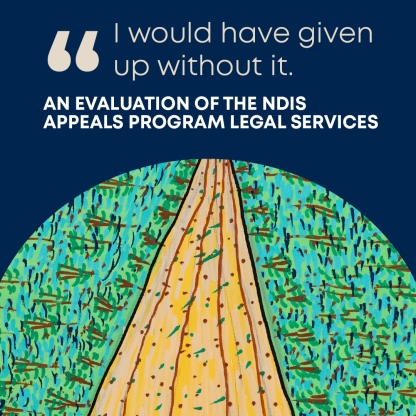1. Background
The Family Violence and Cross-examination of Parties Scheme (the scheme) supporting s.102NA of the Family Law Act 1975 (Cth) (introduced in 2019) was a landmark initiative aimed at protecting vulnerable parties in family law proceedings from direct cross-examination by alleged perpetrators of family violence. The scheme applies to the Federal Circuit and Family Court of Australia (FCFCOA) and the Family Court of Western Australia.
The scheme is funded by the Commonwealth and administered by each Legal Aid in their jurisdiction. It provides funding for a legal practitioner to any unrepresented party in a matter to which the ban applies. Funding for each party is limited to the hearing in which cross-examination is to occur, including the necessary preparatory work for that hearing and, where appropriate, late stage legally assisted family dispute resolution. The scheme is not a grant of aid, although the fee scale applicable to a grant of aid is applied. Importantly, the scheme is not financial eligibility or merit tested. Parties are expected to follow the advice of their lawyer and ongoing representation is
not automatic.
After operating for several years, the scheme is now approaching a critical juncture - most notably funding concerns resulting from insufficient up-front funding and a lack of sufficient injection of extra funds to meet increasing demand pressures. Operational challenges are compounding the funding situation and Legal Aids hold a number of concerns about the operational, ethical and safety issues for the scheme. Of greatest concern is that the scheme designed to protect victim-survivors of family violence is failing to do so in some cases.
National Legal Aid (NLA) has consulted Legal Aids, as the only operators of the scheme, to develop options to address the critical challenges facing the scheme and opportunities for improvement. The Commonwealth Attorney General’s Department (AGD) has also released an options paper for consultation. The challenges of the scheme that have been identified by Legal Aids, and proposals for reform, are summarised below.
2. Critical challenges of the scheme
- Underfunding and resource constraints, with current Commonwealth funding proving insufficient to meet increasing demand for legal assistance representation for unrepresented litigants in family law cases.
- Absence of financial eligibility testing permitting access to scheme-funded legal representation regardless of a party’s financial capacity.
- Vulnerability to system manipulation by perpetrators of violence who exploit the scheme to delay proceedings.
- Client conduct issues where abusive, threatening, or uncooperative behavior by parties has led to multiple withdrawals of practitioners funded by the scheme, resulting in delays and reduced effectiveness of representation.
- Limited practitioner availability especially in regional and remote areas, compounded by declining participation from private practitioners willing to do this work.
- The scheme dilutes the overall capacity of Legal Aids to meet service requirements for their own clients, as it leverages Legal Aid practitioner panel structures and other administrative systems and practices, where practitioners agree to participate.
- Lack of knowledge about the scheme amongst some litigants despite referrals by the Court.
3. Proposed reforms
- Introduction of a financial eligibility test for applicants to the scheme. This would better align the scheme with legal aid principles and reduce misuse.
- Introduction of a co-contribution mechanism, allowing litigants who do not meet the financial eligibility test to apply for a contribution to the payment of their lawyer.
- Upholding the ban on personal cross-examination by parties who do not qualify for assistance and refuse to pay for legal representation, ensuring compliance with cost obligations and discouraging misuse of the scheme. There could be scope introduced for the Court to appoint an intermediary to pose the litigant’s cross examination questions.
- Limiting access to more than one lawyer per party under the scheme, curbing excessive resource consumption and promoting case resolution. This would include reviewing reasons as to why another lawyer is sought.
- Imposing a time limit for lodging applications, improving administrative efficiency and preventing strategic delay.
- Providing adequate and sustained Commonwealth funding for the scheme and general family law legal aid grants, to ensure access to justice for vulnerable parties is preserved without compromising legal service delivery.
Without reform and appropriate investment, the scheme risks failing those it was designed to protect. A measured, evidence-based response is required to ensure the scheme remains a functional and fair component of the broader family law system.


